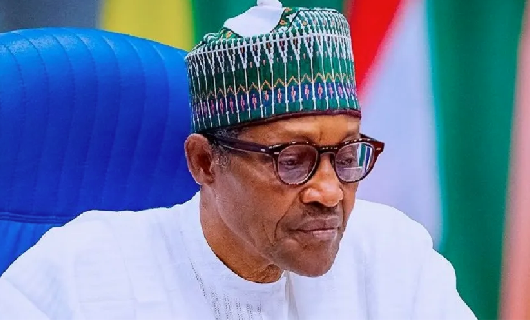•Eyebrow on provision that ministers should resign to contest for office •INEC to get list of candidates Aug. 18
Sources said those pushing against presidential assent to the bill anchor their argument on “certain anti-democratic and discriminatory clauses”.
But, if signed and it becomes law, political parties will be expected to submit the names of their presidential candidates by August 18 — six months before the date of the presidential election.
According to the Independent National Electoral Commission (INEC) timetable, the presidential election will hold on February 18, 2023.
Going by the provision of the reworked bill sighted by The Nation, on the date of submission of names of candidates, primaries for National Assembly, governorship and presidential candidates will hold between July and mid-August.
A source said: “The President may still reject the bill because of ‘vendetta and anti-democratic clauses’ in the reworked Electoral Act Amendment Bill 2022.
“We may end up using the Electoral Act 2010 (as amended) for the 2023 general election because of strange clauses.
“For instance, it is illegal to exclude political office holders from primaries. By implication, ministers, commissioners and others cannot participate in the electoral process.
“Also, the nation does not have the wherewithal for the use of the electronic voting machine. Most politicians in the All Progressives Congress (APC) and the Peoples Democratic Party (PDP) are uncomfortable with it.”
He added: “The consensus clause is cumbersome and an attempt to hit back at state governors who used to impose candidates. So, we should expect a likely rejection of the bill by the President.”
Attorney-General of the Federation and Minister of Justice Abubakar Malami (SAN) said he received the reworked bill sent to him by the President for his advice, on Monday. He said he would propose to the President to sign the bill if the content is in the national interest.
According to other provisions in the bill, the electoral commission may use an electronic voting machine or any other voting device for the election.
Ministers, commissioners and other political appointees are barred from serving as poll agents during the election.
Besides, no political appointee at any level, be it a minister, commissioner or board chairman, can vote or be voted for during primaries.
The election expenses for elective offices are pegged as follows: presidential, N5billion; governorship, N1billion; Senate and House of Representatives, N100million and N70million; House of Assembly, N30million; chairmanship election into an area council, N30million; and councillorship, N5million.
No individual or other entity shall donate to a candidate more than N50million.
Section 29 (1-3) of the Electoral Act Amendment Bill 2022 is explicit on the deadline for the submission of the list of candidates.
The section says: “Every political party shall, not later than 180 days before the date appointed for a general election under this Act, submit to the Commission, in the prescribed forms, the list of the candidates the party proposes to sponsor at the elections, who must have emerged from valid primaries conducted by the political party.
“The list or information submitted by each candidate shall be accompanied by an affidavit sworn to by the candidate at the Federal High Court, High Court of a state, or Federal Capital Territory, indicating that he or she has fulfilled all the constitutional requirements for election into that office.
“The Commission shall, within seven days of the receipt of the personal particulars of the candidate, publish same in the constituency where the candidate intends to contest the election.”
Regarding mode of primaries, Section 84 (1) recommends: “A political party seeking to nominate candidates for elections under this Act shall hold primaries for aspirants to all elective positions, which shall be monitored by the Commission.
“(2) The procedure for the nomination of candidates by political parties for the various elective positions shall be by direct, indirect primaries or consensus.”
The conditions for consensus are as follows:
- A political party that adopts a consensus candidate shall secure the written consent of all cleared aspirants for the position, indicating their voluntary withdrawal from the race and their endorsement of the consensus candidate.
- Where a political party is unable to secure the written consent of all cleared aspirants for the purpose of a consensus candidate, it shall revert to the choice of direct or indirect primaries for the nomination of candidates for the aforesaid elective positions.
- A special convention or nomination congress shall be held to ratify the choice of consensus candidates at designated centres at the national, state, senatorial, federal and state constituencies, as the case may be.
Section 84(10-13) limits courts from either stopping party primaries or elections from holding.
The section prevents political office holders at any level from participating or contesting for nomination into any elective office during primaries at the national convention or state congress.
It claims: “No political appointee at any level shall be a voting delegate or be voted for at the convention or congress of any political party for the purpose of the nomination of candidates for any election.”
 DailyrecordNg …Nigeria's hottest news blog
DailyrecordNg …Nigeria's hottest news blog









